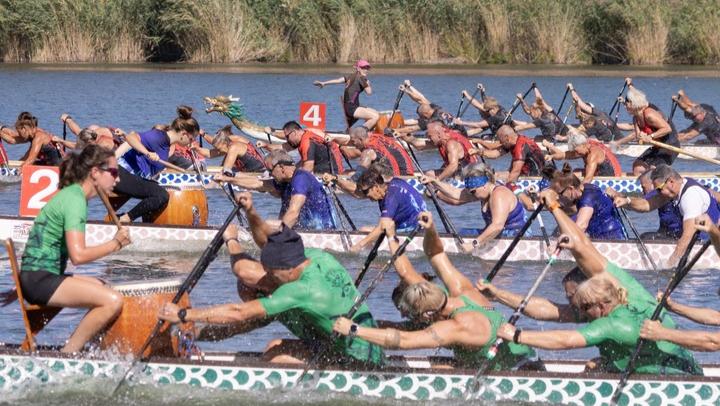BUDAPEST, Sept. 29 (Xinhua) -- A Chinese festival tradition is finding new life on Hungary's rivers, where long, brightly painted dragon boats have become a symbol of friendship between the two countries, according to Peter Jarosi, president of the Hungarian Dragon Boat Federation.
"Dragon boating has remarkable community-building power," Jarosi told Xinhua on Monday. "We respect the Chinese cultural heritage embedded in this tradition and take pride in showing the strength of teamwork through it."
Introduced to Hungary in the 1990s, dragon boating has grown into a beloved part of the country's sports and cultural landscape. Jarosi's personal journey began in 2002 at an international championship, where the sight of carved dragon heads, the thunder of drums and paddlers' perfect rhythm left a deep impression.
"Later, I learned the story of Qu Yuan," Jarosi recalled. "That's when I realized dragon boating isn't just a race -- it's a 2,000-year-old tradition still alive today." Qu Yuan, an ancient Chinese poet who is associated with the origin of the Dragon Boat Festival.
Determined to integrate the sport into local life, Jarosi learned the drumbeat himself and vowed to develop it not as a "foreign novelty," but as a shared sport.
Hungary's engagement in the sport has deepened over the years. In October 2024, Hungarian paddlers raced at the dragon boat World Cup held in China's Miluo City, which is often referred to as the "hometown of dragon boat races." Today, the Hungarian federation counts some 700 licensed competitors and about 2,000 active club members, with an estimated 10,000 to 15,000 Hungarians taking part in dragon boat activities each year.




 A single purchase
A single purchase









